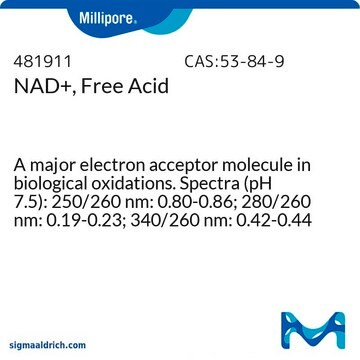R1653
Anti-RAD50 antibody produced in rabbit
affinity isolated antibody, ammonium sulfate suspension
About This Item
Recommended Products
biological source
rabbit
conjugate
unconjugated
antibody form
affinity isolated antibody
antibody product type
primary antibodies
clone
polyclonal
form
ammonium sulfate suspension
mol wt
antigen 154 kDa
species reactivity
human, rodent
technique(s)
immunohistochemistry: suitable
western blot: suitable
UniProt accession no.
storage temp.
−20°C
target post-translational modification
unmodified
Gene Information
human ... RAD50(10111)
mouse ... Rad50(19360)
rat ... Rad50(64012)
Immunogen
Application
Immunofluorescence (1 paper)
Western Blotting (1 paper)
Disclaimer
Not finding the right product?
Try our Product Selector Tool.
Storage Class
12 - Non Combustible Liquids
wgk_germany
WGK 1
flash_point_f
Not applicable
flash_point_c
Not applicable
Certificates of Analysis (COA)
Search for Certificates of Analysis (COA) by entering the products Lot/Batch Number. Lot and Batch Numbers can be found on a product’s label following the words ‘Lot’ or ‘Batch’.
Already Own This Product?
Find documentation for the products that you have recently purchased in the Document Library.
Our team of scientists has experience in all areas of research including Life Science, Material Science, Chemical Synthesis, Chromatography, Analytical and many others.
Contact Technical Service






